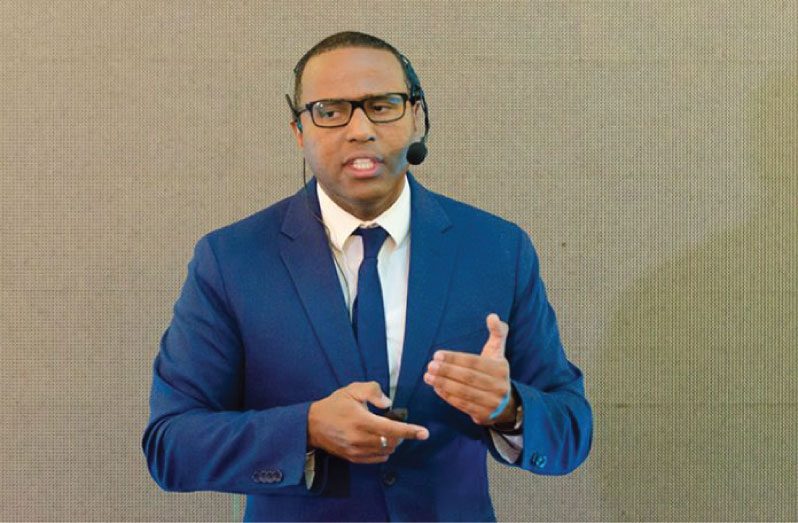– Says Regional Economist
ECONOMIC independence and climate-friendly development among Caribbean countries should be part of the region’s developmental trajectory, according to Regional Economist, Dr. Justin Ram.
Dr. Ram, the Former Director of Economics at the Caribbean Development Bank (CDB), highlighted that even before the devastating ramifications of the COVID-19 pandemic, many Caribbean countries were experiencing low levels of economic growth. The economies also contend with high levels of debt and uncompetitiveness, and countries are characterised by high levels of poverty and unemployment. Beyond that, the Caribbean countries are highly susceptible to the adverse effects of climate change.
“If you’re starting to think about coming out of this (pandemic), we need considerable innovative ideas and considerable stimulus that actually now targets all the deficiencies we had in our economies- even before this,” he said, in a recent online forum.
Climate-friendly development should be a key focus, according to the economist, since countries all over the world are becoming more conscious of the imminent threat of climate change.
In fact, the recovery packages announced by many of the developed countries of the world include climate considerations. The $826 billion recovery package of the European Union is one such example; 25 percent of that amount has been set aside for climate-friendly measures.
“Although Guyana is on the brink of a great windfall from the oil and gas industry, I think no oil and gas economy should be sitting on its laurels right now… It is time for Guyana to pay attention to that,” Dr. Ram said in specific reference to Guyana’s burgeoning oil sector and global climate change considerations.
Bloomberg Green has reported that countries across the world are turning towards renewable energy, since the COVID-19 pandemic illustrated the adverse effects of being overly dependent upon fossil fuels.
Dr. Ram stressed that while revenues from this industry may be substantial for Guyana, the country- like all other Caribbean countries- should ensure that the revenues are used in ways which align with the Paris Agreement and the global Sustainable Development Goals (SDGs). That is, the revenues should be channelled in sustainable development avenues; this is a key priority of the government and has been articulated in the Green State Development Strategy (GSDS).
The Paris Agreement sets out a global framework to mitigate climate change by limiting global warming to well below 2°C and pursuing efforts to limit it to 1.5°C. Meanwhile, the 17 SDGs are a framework which attempts to guide the world towards achieving a better and more sustainable future for all.
ECONOMIC INDEPENDENCE
The Economist also argued that the Caribbean at large must use the opportunity to plan and build for the long term, and restructure economies so that there is more economic independence in the region.
Priority areas of development, he said, should be on bolstering agricultural capacity; enabling easier regional transport of people and goods; and, digital and technological transformation. It is also imperative for the Caribbean to become a single economic space, so that entrepreneurs across the region would have access to a wider target population, Dr. Ram noted.
“We will always be open economies but we have to find ways to invest in industries that will diversify our economies and give us some amount of economic independence so that when these exogenous shocks happen, we are not going to be negatively affected like how we are,” he contended.
According to the World Economic Outlook Report published by the International Monetary Fund (IMF) on June 24, the real Gross Domestic Product (GDP) of Latin America and the Caribbean is expected to have a negative growth rate of 9.4 percent in 2020. In 2021, however, real GDP for the same Region is expected to be 3.7 percent. It has been well reported that Caribbean islands, which depend largely on tourism, have been adversely affected by the COVID-19 pandemic.
“Unless there is a vaccine to help people recover from COVID-19, people are going to be fearful of travelling,” he said. “Secondly, there are considerably damaged household balance sheets. So when you combine these, you can only imagine how long it could take our economies in the Caribbean to recover.”
What is worrying is that estimates show that the Caribbean may take approximately 55 months to return to the economic state it was before the coronavirus pandemic. But even then, Dr. Ram reminded that Caribbean nations were not in a good place before.



.jpg)










